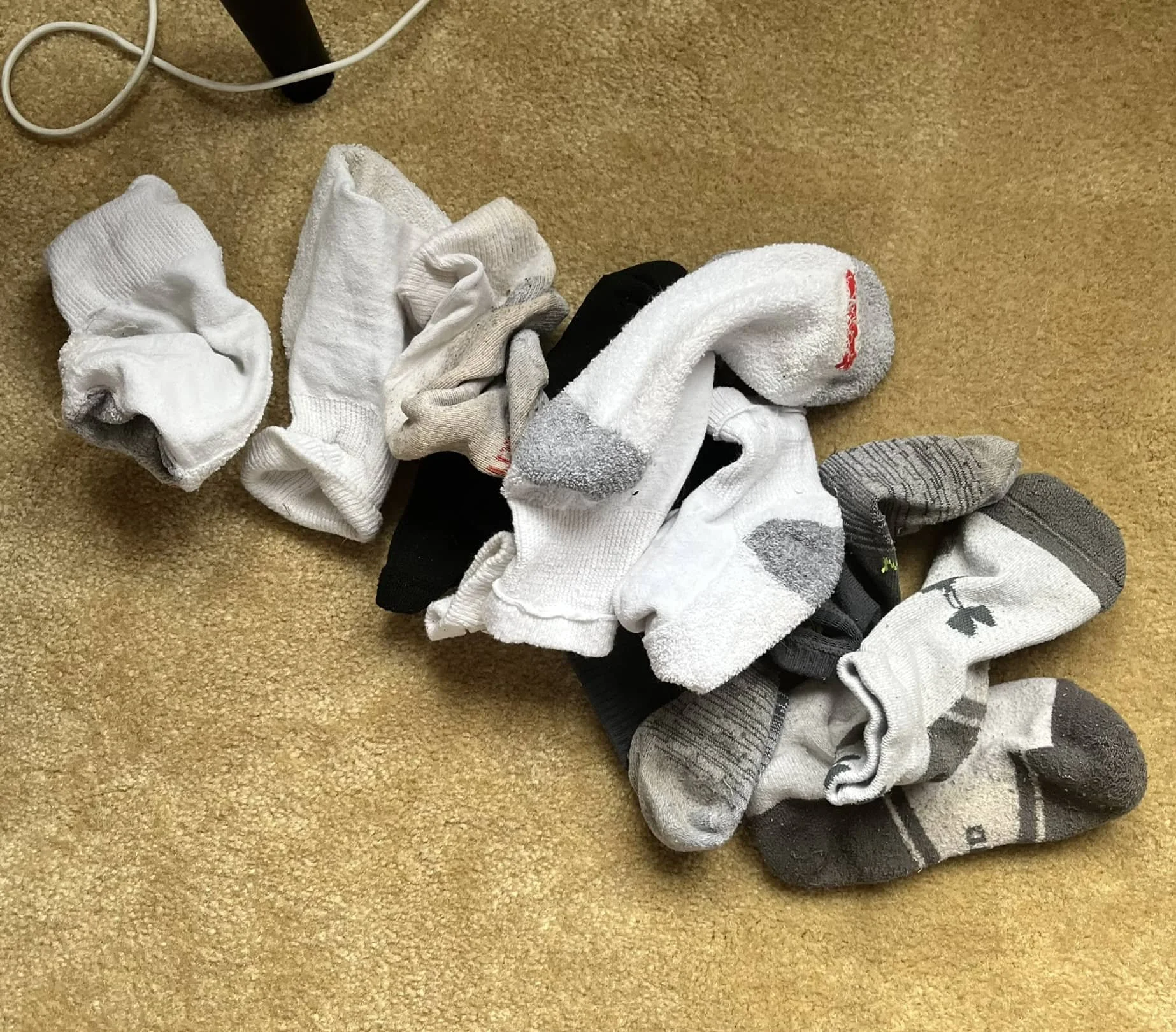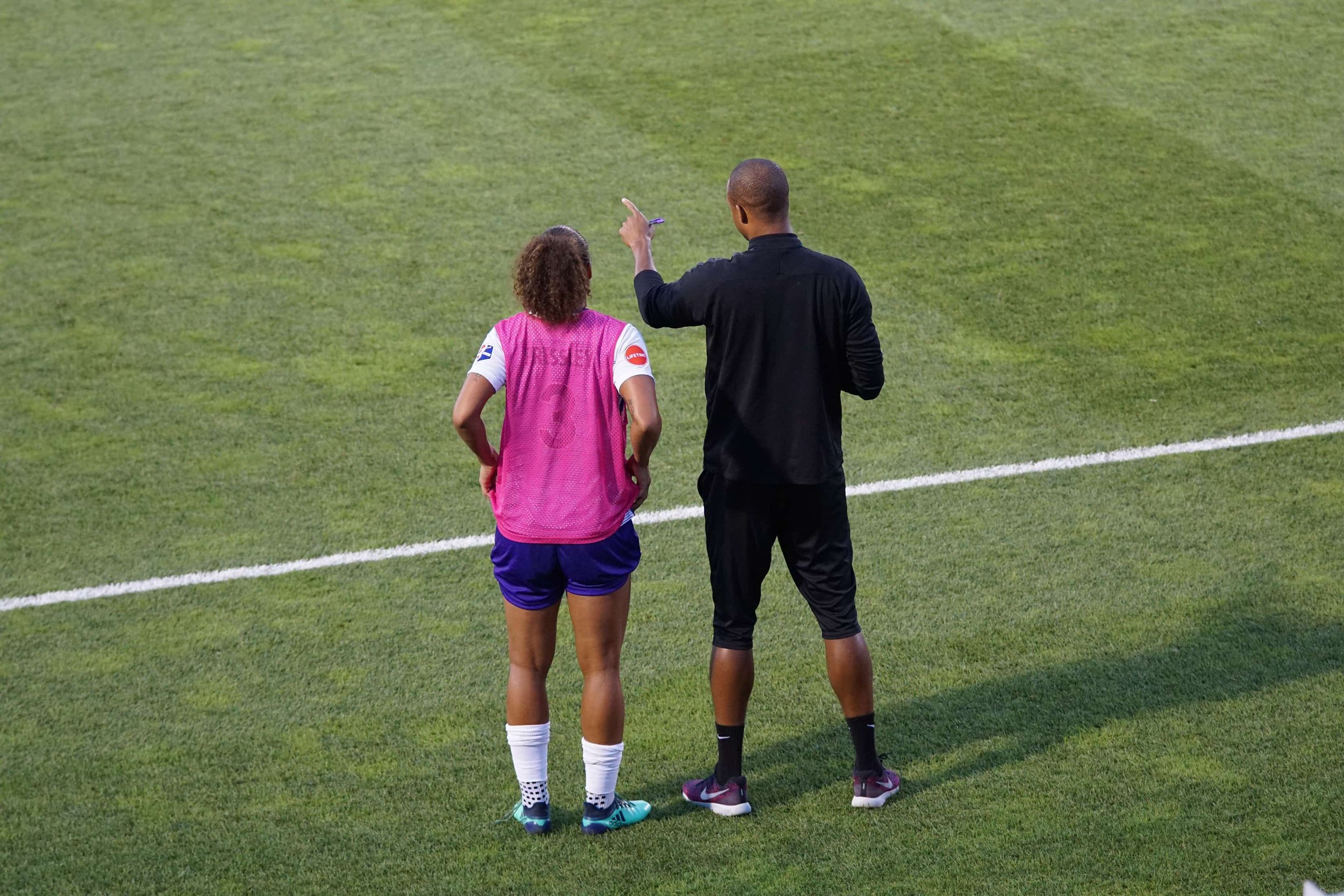Be your kid’s coach
Coaching seems to be a real thing these days. You can get a coach to help you in nearly anything from relationships to career. This post was originally entitled “Be your kid’s problem solving buddy,” but given the current ubiquitousness in the types of coaches, we’ll think of this as a coach for the development of problem solving skills, Since that’s WAY too long of a title, “Be your kid’s coach” it is. Anyway...here’s my story.
Actual “footage” of mom-gathered dirty socks in their natural habitat.
In our household, like in many households, we have differences in executive functioning—that’s neurodiversity for ya! Sometimes particular strengths and challenges don’t align between parent and child. This is the case for me and one of my young people, which sometimes creates some, we’ll call them “moments.” True confession—Am I sometimes wildly frustrated? Absolutely. Do I find socks in places no socks should ever be? Yes. Regularly? Yes. Do I sometimes want to scream? 100%! That’s called being a parent.
However, a while back, I read a great book (Smart but Scattered by Dawson and Guare) and chose to change my narrative. Why fight a losing battle with brain function when we can teach children how to work WITH their brain instead? So many of the adults I know judge their responses and emotions, basically who they are. They create narratives of failure around what is essentially natural human brain function. If you’re taking the time to read this, I am guessing you don’t want that for your young person. So when these inevitable challenges happen, parents have a choice to make. Will we explode in frustration, get angry, expect things from our children they just cannot do? OR will we jump in with our whole selves, be present, and assist in problem solving the issue at hand. In the second scenario, instead of walking away with shame, our young person learns how to answer the question “How do I work with the way my brain works and create success in my everyday life?” For my child, this includes “How do I do the things my mom asks of me before her head explodes?” So that works for me. And for the dirty socks.
“How do I do it?” you ask. Something like this. Wildly frustrating thing happens. Parents everywhere immediately want to scream something along the lines of “FOR THE 100th TIME...” Go ahead and scream in your head. This is frustrating. Or plan to text a parent friend later, preferably one you can say things to that won’t be taken overly seriously so you can freak out a bit. Then, I suggest you pause and breathe. Deeply. (Don’t skip this part; it’s critical. It’s the part that helps you get out of your reactive brain. Additionally, don’t worry, it’s unlikely the world will come to a screeching halt during those seconds.) Next, acknowledge out loud that your child’s brain works differently from yours and name the issue together--what is really going on here? Align yourself WITH your kid, not against them. Explore together. Is it that a specific workaround is needed? A new skill to be developed? Try to figure out a strategy that will work WITH the brain your child has, not the one others might wish they have. Goodbye, shame. Hello, new skills.
You might ask why this could be critical enough that I am writing about it, and I have a variety of reasons for you. I mentioned a few above in talking about adults I come across. Here are a few more. Instead of asking for your child to change to be accepted, this approach says to kids, “How do we work with who you already are? Cause that person is pretty damn great.” It builds self-acceptance and self-compassion, which are critical in healthy relationships. It communicates that you don’t have to change to be loved and accepted. What a solid basis for healthy adult relationships! It also teaches that you can creatively design strategies to get done what’s needed, and you have a buddy in that. Let’s be honest, our young folks have to function with whatever brain they have, in a world that’s mostly designed for certain types of brains. That’s hard enough; added shame for things they cannot change is an extra load to bear.
So, be your kid’s coach. Cheer on what they are doing well and collaborate with them to address challenges and build skills, but always build on what they can actually do. Maybe, if you’re lucky, you will end up finding fewer socks in strange places. Even if you don’t, I can assure you that adjusting your understanding of what’s going on will help you feel less stressed. Your kid didn’t plant those there to drive you insane. Unless you have a kid with a sense of humor—maybe they did it on purpose.
If I can help you practice these skills and others of responsive, attuned parenting, please reach out and schedule a free consultation.


